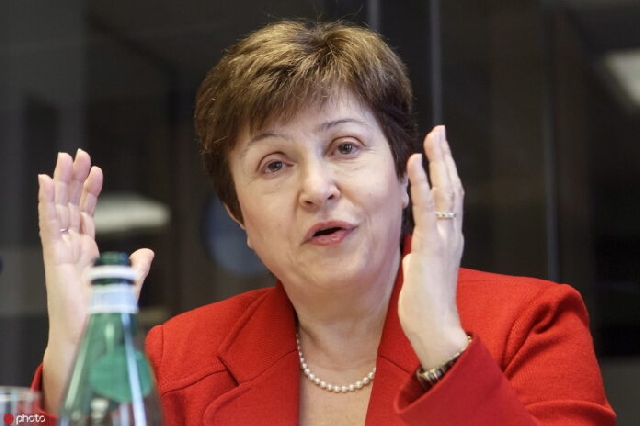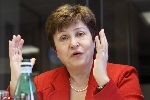Ghana’s trade surplus meets IMF reserves expectation with US$6.9bn for 3 months
 Ghana is under a three-year US$3bn programme with the IMF
Ghana is under a three-year US$3bn programme with the IMF
In the first two months of 2025, the trade account recorded a surplus due to higher export receipts relative to imports, Bank of Ghana Governor Johnson Asiama has told journalists.
Briefing the media on Friday, 28 March 2025 following the 123rd regular meeting of the Monetary Policy Committee (MPC) held in the week to assess recent economic developments and risks to the inflation outlook, Dr Asiama said the “strong” external sector performance in 2024 continued in early 2025, indicating a significant improvement in the accumulation of reserves.
Dr Asiama noted that total exports posted 50.0 per cent annual growth to reach US$4.3 billion, driven by increased gold and cocoa exports arising from both price and volume effects.
In contrast, he said crude oil exports declined as output from the three oil-producing fields fell.
Total imports, on the other hand, increased by 7.3 per cent year-on-year to US$2.7 billion.
Consequently, the Governor explained that international reserve accumulation met the IMF programme expectation for 2026.
He said the stock of Gross International Reserves, at the end of February 2025, was US$9.4 billion, enough to cover 4.2 months of imports of goods and services.
This compares to the stock of US$5.9 billion at the end of December 2024, equivalent to 4.0 months of imports of goods and services.
Dr Asiama explained that the Gross International Reserves, as defined under the IMF programme to exclude the encumbered assets and petroleum funds, increased to US$6.9 billion, equivalent to 3.0 months of imports of goods and services, in February 2025.
The Governor announced that the external sector outlook remains strong, noting: “This is against the backdrop of increases in gold exports driven by sustained implementation of the Gold-for-Reserve programme, continued growth in remittance inflows, and commitment to the implementation of policies and reforms under the IMF programme.”
He said: “In the outlook, the continued build-up of reserve buffers is expected to support the stability of the currency.”
Trending Business

Bank loans: 35% interest rate senseless – Agongo says Heritage Bank would’ve charged 20% to force low rates
13:23
‘Ofori-Atta promised to do his best to protect my bank but still collapsed it’ – Agongo
10:53
‘Vindictive,’ ‘backward-minded’ Akufo-Addo gov’t didn’t think the name ‘Agongo’ deserved owning a bank or prospering
10:31
PMMC transforms into GoldBod following passage of GoldBod Bill
16:30
Remittances, gold prog. anchor cedi against dollar – BoG
05:13
Ghana’s trade surplus meets IMF reserves expectation with US$6.9bn for 3 months
05:09
BoG: Gold crosses $3,000/ounce price, oil jumps 2.4%, cocoa tumbles 8.5%
05:07
Fiscal performance sees improvement – BoG Governor
05:03
Bank assets grow 34%, CAR rises to 14.4%, NPLs fall to 22.6% – BoG
05:00
Inflation expectations softening – BoG
04:58




